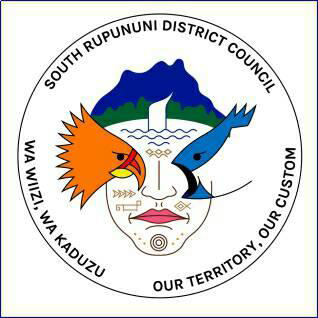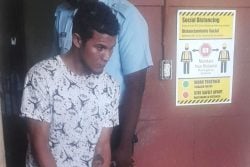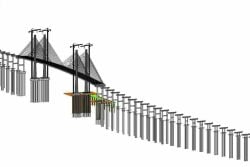Following the confirmation of five new novel coronavirus disease (COVID-19) cases in three indigenous communities in Region Nine, the South Rupununi District Council (SRDC) has announced that all South Rupununi communities are on lockdown.
In a statement issued on Friday, the SRDC, which is the representative body of the 21 indigenous communities of the South Rupu-nuni, said that the decision to lock down all South Rupununi communities was taken to contain the spread of COVID-19, considering that the three communities that have recorded cases are within the South Rupununi area.
The lockdown began last Wednesday.
According to the statement, Village Councils of the 21 communities will have systems in place to facilitate the delivery of food and other essential items to their respective communities. Essential travel into the Marudi mines will also be allowed. Meanwhile, for the South Rupununi villages, all measures including a 6 pm to 6 am curfew, will remain in place until further notice.
“Since the first confirmed case of the virus in Guyana in March of this year, the SRDC has assiduously worked with our villages to protect our people. The inadequate healthcare systems and supplies in our region leave our people extremely vulnerable to disease, particularly this novel coronavirus. Immediately following the outbreak, we blocked several illegal crossings along the Guyana-Brazil border, followed by conducting regular border monitoring. We have been monitoring entry and access into our villages and roads, and we are working with local security and health personnel to put in place proper measures to protect our communities,” the statement added.
Additionally, it was stated that the SRDC attended several meetings with the Ministry of Public Health (MoPH) and the Regional COVID-19 Task Force to provide ground information and assist with the response to COVID-19.
In fact, the SRDC noted that it had voiced concerns in media statements and written formal letters to the relevant authorities requesting that mining activities in the region be suspended and that the government provide assistance to monitor border crossings so as to prevent entry. According to the statement, the SRDC also asked for access to medical equipment and for supplies to be improved in those communities.
However, it said the Council is yet to receive a response to its concerns and pleas for assistance.
“Our greatest threat remains the vast open border the South Rupununi shares with Brazil. Indeed, our efforts have been stymied by the Govern-ment’s continued refusal to remove mining from its list of essential services and by its interventions on behalf of miners which have allowed them to continue to traverse our territory, threatening and challenging our gatekeepers. The Government’s prioritization of interests such as mining is compounded by the inadequacy of the public health response to this global pandemic,” the statement said.
Further, the SRDC added that there were cases where it took health care workers almost a week to test persons even though they were reporting COVID-like symptoms and then taking several days to receive their test results. It was also stated that the fact that it took more than 48 hours before patients were transported to an isolation facility in Lethem is very concerning. Further, the statement added that there is an inadequate supply of sample kits in Region Nine and as a result only persons with severe symptoms are tested. The statement noted that all the issues mentioned only heightens the risk of increased community transmission.
“Our leaders, despite the limited resources at their disposal, have worked diligently to protect our communities by encouraging villages to abide by measures. However, as is the case elsewhere, there are a few selfish individuals that have greatly compromised our villages by taking advantage of the open border and using illegal border-crossings. Now more than ever, we demand that the Government and regional authorities support our decisions and measures to protect our people from the spread of this deadly virus,” the statement added.





